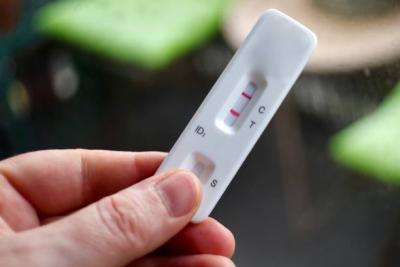People who have a health condition which means they are eligible for Covid-19 treatments should be sent a Covid-19 test to use if they have symptoms. They can order NHS tests themselves, either if they have not received any tests or have used the tests they have been sent.
Patients may need to get tested if they are due to go into hospital for surgery or a procedure and will be eligible for a free test.
Meanwhile, people who work in the NHS or in social care are eligible for free testing if they are NHS patient facing staff, staff who deliver NHS services through an independent healthcare provider and have direct contact with NHS patients, a social worker, a personal assistant, a Shared Lives carer or a Care Quality Commission inspector.
People who work in care homes, domiciliary care, extra care and supported living services and in adult day care centres can also get free NHS tests.
For more details about Covid-19 testing, and to order free rapid home test kits, please visit Coronavirus (COVID-19).
People who are not eligible for a free NHS test can purchase rapid test kits from some pharmacies and retailers, in person or online.
Councillor Jasbir Jaspal, the City of Wolverhampton Council's Cabinet Member for Public Health and Wellbeing, said: "Covid hasn't gone away, so if you are eligible for free testing please take up the opportunity as and when required.
"And if you are not eligible for free testing but you develop Covid-19 symptoms, I would strongly encourage you to get a rapid home test kit from a local retailer, if it is safe for you to do so.
“If you can’t, it’s particularly important that you try to avoid close contact with others, especially those who are high risk, and stay home until you no longer have a high temperature, if you had one, or until you feel better."
She added: "There are also plenty of other things you can continue to do to protect yourself, your family and your community from Covid-19.
"You should wash your hands regularly and cover your mouth and nose when you cough or sneeze, and please consider wearing a face covering in crowded or enclosed places or when you are coming into contact with people at higher risk from Covid-19. As the weather gets better, try to meet others outside, and let fresh air in if you are meeting indoors.”
For the latest Government Covid-19 guidance, please visit Coronavirus (COVID-19).
